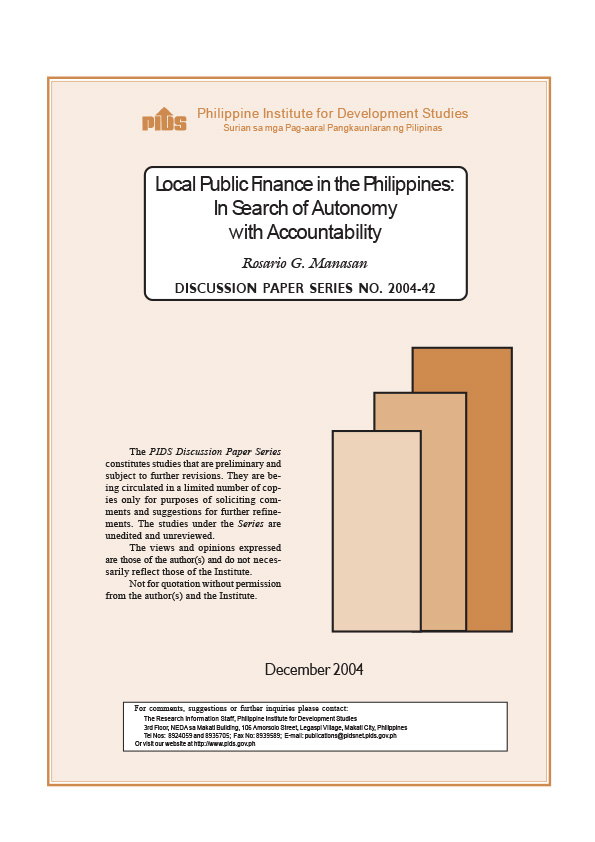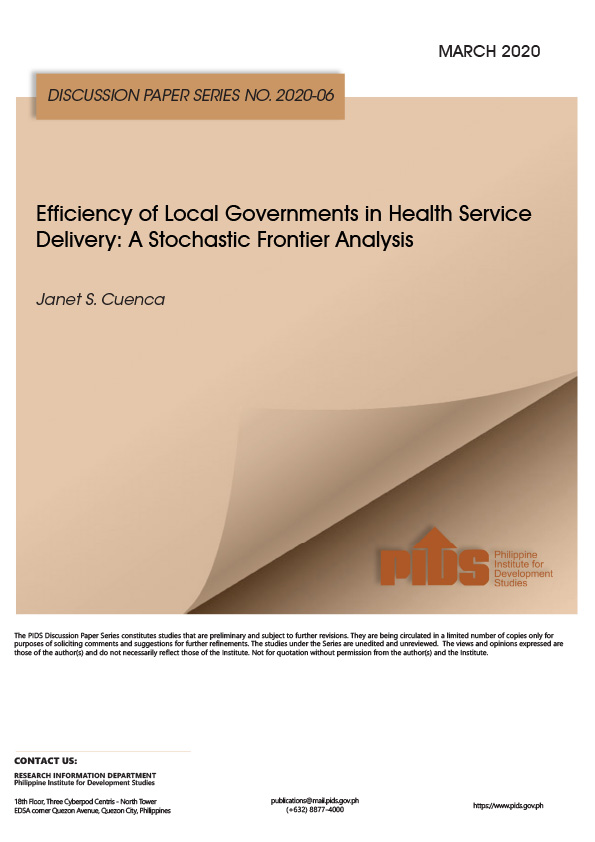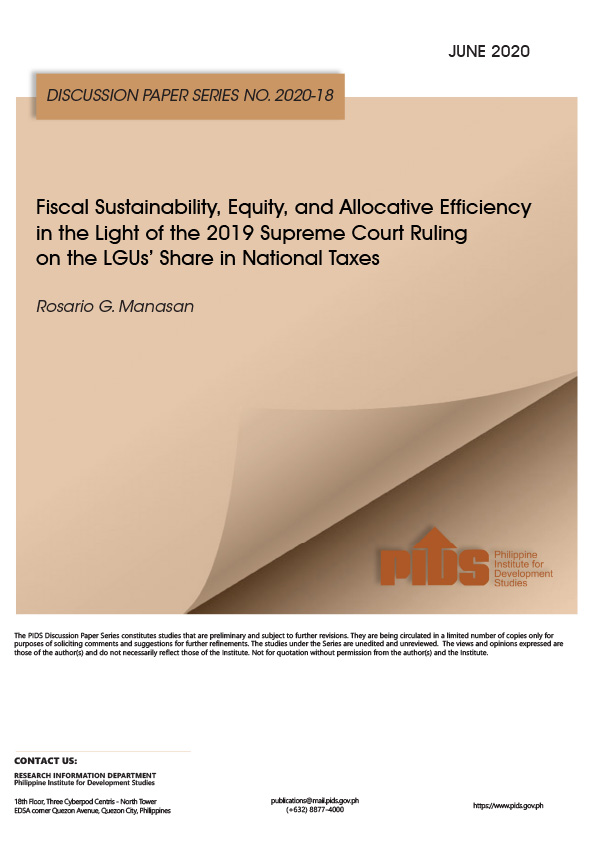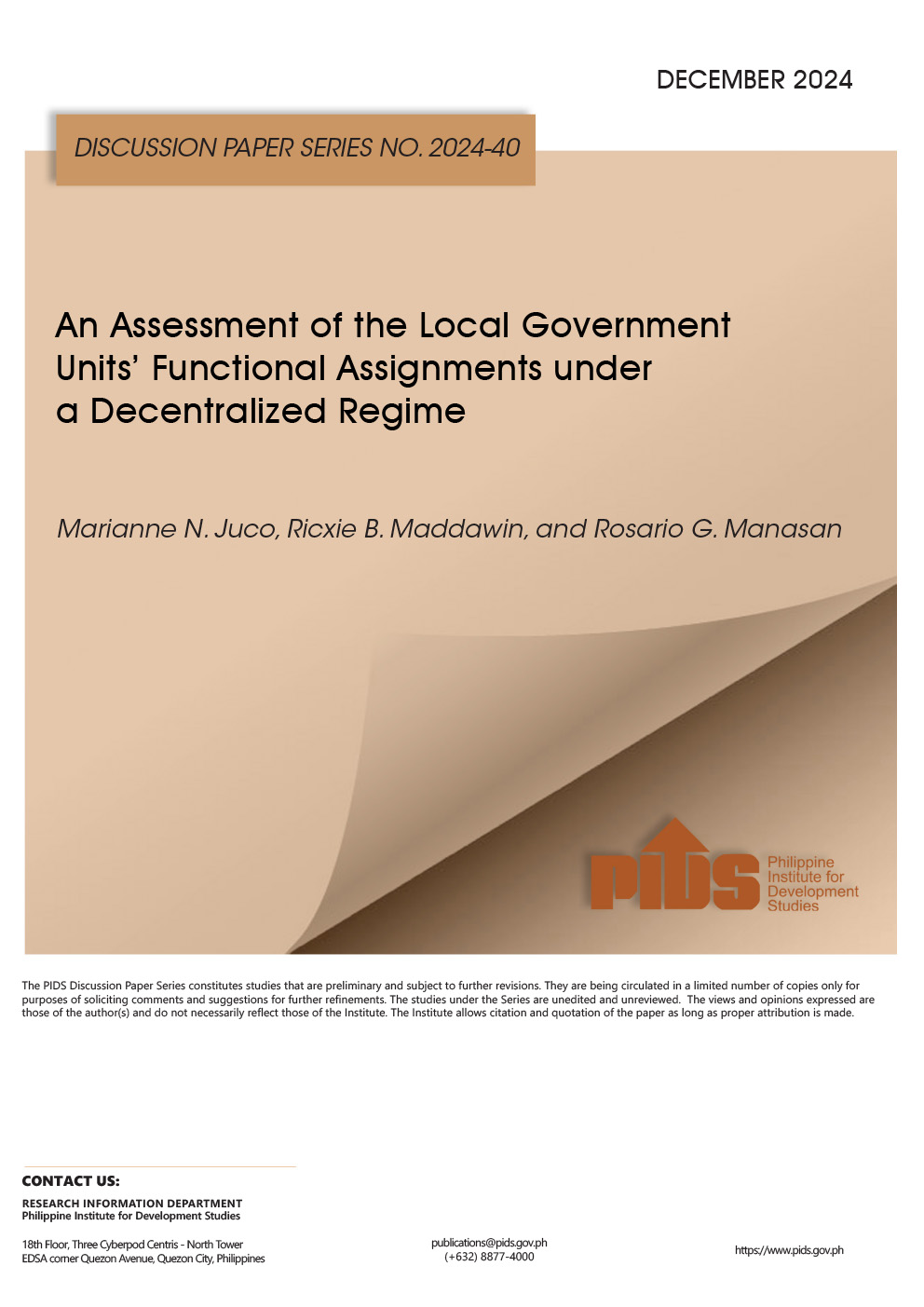Twelve years into the implementation of the Local Government Code of 1991, it is but opportune to assess how the key features of this landmark legislation has contributed to (or detracted from) achieving the balance between local autonomy and accountability. The literature on fiscal decentralization suggests that these two goals are not incompatible. In fact, real autonomy (in the sense of subnational governments being able to link their spending decisions with their revenue/tax decisions) promotes fiscal responsibility. In the context of the ongoing debate in the Philippines, however, local autonomy has been equated (by many LGUs officials) with the independence of LGUs from central government interference. As such, LGU officials have focused more on securing even higher levels of block grants in order to address the widely perceived vertical fiscal imbalance. However, closer scrutiny of the problem indicates that greater tax decentralization coupled with a well designed intergovernmental transfer system that includes elements of fiscal equalization and categorical grants conditional on the achievement of minimum service standards would better enhance the gains that are forthcoming from the decentralization process while minimizing the risks of macroinstability.
Citations
This publication has been cited 4 times
- Fritz, Verena, Brian Levy, and Rachel Ort. 2014. Problem-driven political economy analysis: The World Bank's experience. World Bank Publications - Books, number 16389. The World Bank Group.
- Layug, Allan S. 2009. Triangulation framework for local service delivery. Discussion Papers DP 2009-37. Philippine Institute for Development Studies.
- World Bank. 2007. Local government discretion and accountability: A local governance framework. World Bank Publications - Reports 7859. The World Bank Group.
- World Bank. 2009. Community driven development and accountable local governance: Some lessons from the Philippines. World Bank Publications - Reports 13054. The World Bank Group.













